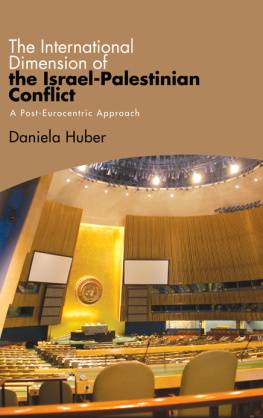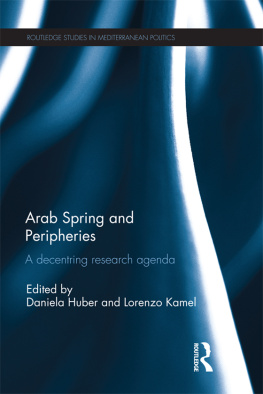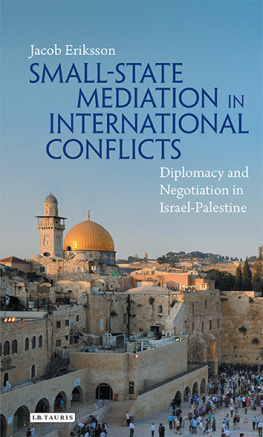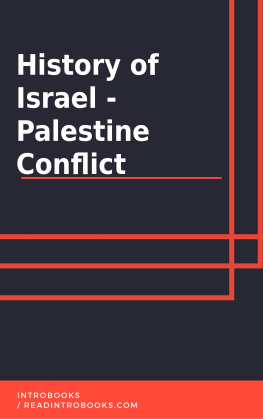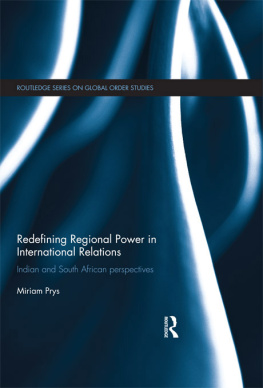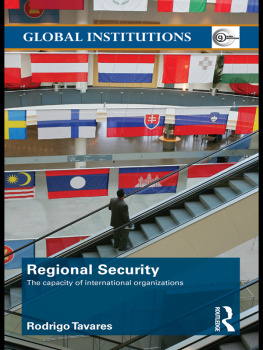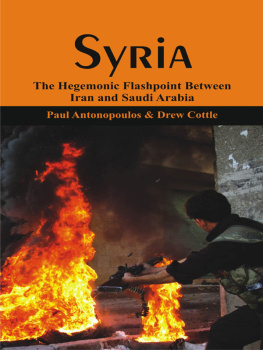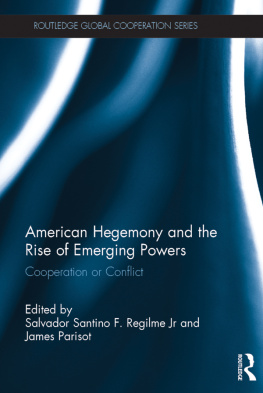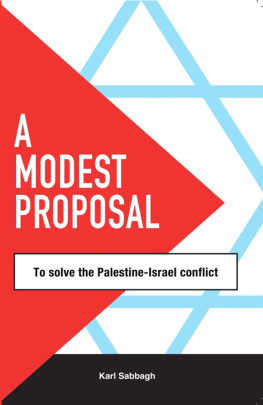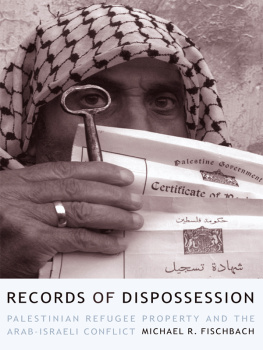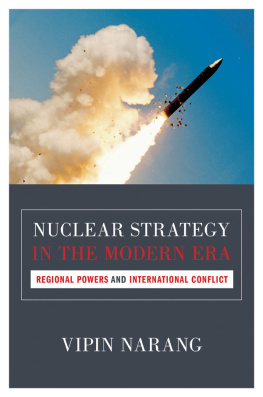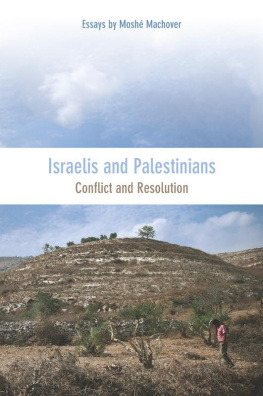The International Dimension
of the Israel-Palestinian Conflict
The International Dimension
of the Israel-Palestinian Conflict
A Post-Eurocentric Approach
Daniela Huber
Published by State University of New York Press, Albany
2021 State University of New York
All rights reserved
Printed in the United States of America
No part of this book may be used or reproduced in any manner whatsoever without written permission. No part of this book may be stored in a retrieval system or transmitted in any form or by any means including electronic, electrostatic, magnetic tape, mechanical, photocopying, recording, or otherwise without the prior permission in writing of the publisher.
For information, contact State University of New York Press, Albany, NY
www.sunypress.edu
Library of Congress Cataloging-in-Publication Data
Name: Huber, Daniela, author.
Title: The international dimension of the Israel-Palestinian conflict : a post-Eurocentric approach / Daniela Huber.
Description: Albany : State University of New York, [2021] | Includes bibliographical references and index.
Identifiers: LCCN 2020039947 (print) | LCCN 2020039948 (ebook) | ISBN 9781438481593 (hardcover : alk. paper) | ISBN 9781438481609 (ebook)
Subjects: LCSH: Palestinian ArabsPolitics and government1948 | Arab-Israeli conflict. | PalestineInternational status.
Classification: LCC DS119.7 .H795 2021 (print) | LCC DS119.7 (ebook) | DDC 956.04dc23
LC record available at https://lccn.loc.gov/2020039947
LC ebook record available at https://lccn.loc.gov/2020039948
10 9 8 7 6 5 4 3 2 1
To Lorenzo
Contents
Illustrations
Abbreviations
| AKP | Justice and Development Party |
| BDS | Boycott, Divestment, and Sanctions movement |
| CFSP | Common Foreign and Security Policy |
| EC | European Community |
| ESCWA | Economic and Social Commission for Western Asia |
| EU | European Union |
| ICC | International Criminal Court |
| ICJ | International Court of Justice |
| IR | International Relations |
| MEPP | Middle East Peace Process |
| NATO | North Atlantic Treaty Organization |
| OHCHR | United Nations Human Rights Council |
| OPT | Occupied Palestinian Territory |
| PA | Palestinian Authority |
| PLO | Palestine Liberation Organization |
| UK | United Kingdom |
| UN | United Nations |
| UNDOF | United Nations Disengagement Observer Force |
| UNDP | United Nations Development Program |
| UNEF | United Nations Emergency Force |
| UNESCO | United Nations Educational, Scientific and Cultural Organization |
| UNESCWA | United Nations Economic and Social Commission for Western Asia |
| UNGA | United Nations General Assembly |
| UNIFIL | United Nations Interim Force in Lebanon |
| UNRWA | United Nations Relief and Works Agency for Palestine Refugees in the Near East |
| UNSC | United Nations Security Council |
| UNSCOP | United Nations Special Committee on Palestine |
| UNTSO | United Nations Truce Supervision Organization |
| US | United States of America |
| USSR | Union of Soviet Socialist Republics |
Acknowledgments
T his book is the outcome of a two-year-long individual research project funded by the German Gerda Henkel Foundation and pursued at LUISS (Libera Universit Internazionale degli Studi Sociali) University in Rome, while also building on my longer research pursued in the past ten years. It takes a comparative look at how seven powers in the Middle EastEgypt, the European Union, Iran, Russia, Saudi Arabia, Turkey, and the United Stateshave discursively constructed and performed their roles in the region on the Palestine/Israel question over time, and have thereby not only attached meaning to it but also established webs of relationships bound by dominant paradigmatic framings of the conflict. These framings and the role foreseen for international powers and the UN in them are scripts, and the latter amount to orders when actors perform them accordingly; they break down when actors overperform, underperform, or disperform them. Indeed, scripts have changed over time, and this work traces back continuities, ruptures, and transformations of them. It offers a comparative and historical account to show how todays specific international script on the Palestine/Israel question has emerged, what this script silences and sidelines, and what its alternatives could have been. It also highlights how this script has perpetuated the Israel-Palestinian conflict (so defined in this book to highlight the power asymmetry as one actor is a state and occupying power, the other a stateless people being denied their collective and individual rights) and how it has not succeeded in providing security and peace, but has set a context for further upheaval and crisis in the region at large.
This book will interest students and informed lay readers who would like to get an overview over how key powers in the Middle East have positioned themselves regarding one of the longest-running conflicts in the modern era and how the international paradigmatic framing of it has evolved at the United Nations. Furthermore, its theoretical and methodological take contributes to a decentering approach to International Relations and will therefore interest IR scholars working in this direction.
This work would not have been possible without the wonderful shared journey through this life with Lorenzo Kamel to whom I am eternally grateful for always cheering me up and without whom I might never have begun to think outside the standard IR toolbox. You have opened up a world for me. I am also very thankful to my colleagues at the Istituto Affari Internazionali (IAI) and LUISS University for their extensive feedback on earlier versions and their continuous supportmost notably Riccardo Alcaro, Andrea Dessi, Raffaelle Marchetti, and Nathalie Tocci. Particular thanks go to Michelle Pace for all her thoughtful feedback on this book, as well as the many empowering discussions beyond. I am also extremely grateful to all the thoughtful input I received from the anonymous reviewers of this book and to the copyeditor who has done an outstanding job in improving the book. It has also greatly benefited from many discussions with friends and colleagues while living in Jerusalem and from the feedback I received from colleagues and students when I presented my research at conferences, workshops, and seminars in Rome, Moscow, Turin, Tehran, Ramallah, and Beirut. Furthermore, my wonderful students in my seminar on International Politics at Roma Tre University provided me with lots of food for thought when discussing the research and findings of this book. It would not have been possible without the generous support of the Gerda Henkel Foundation, which gave me the unique opportunity to focus on research. The usual disclaimer applies: the views expressed in this book are those of the author only.

